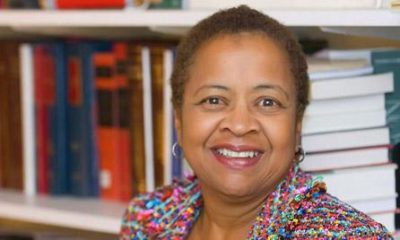Advertisement
Restoring Justice In Civil Rights Cold Cases
ResumeThe struggle for universal civil rights in this country is remembered as a non-violent revolution led by luminaries such as the Rev. Martin Luther King Jr. and Rosa Parks. But many, many activists died for the cause. Margaret Burnham, a law professor at Northeastern University, hopes to make sure that none of those civil rights crusaders are ever forgotten.

Burnham runs the Civil Rights and Restorative Justice Project (CRRJ) at Northeastern, where she and her students examine cases of injustice from the Civil Rights era and look for ways to correct the historical record to help bring justice to victims.
Some civil rights activists were murdered for their work; some were wrongfully charged with crimes. In other cases, crimes against civil rights activists went unpunished. Burnham wants to bring these cases of injustice to light.
“We can’t change the sentence, which was obviously unfair," Burnham said in an interview with Radio Boston's Sacha Pfeiffer. "We do find ways of entering into the process to make those that were affected by it feel that they have now some stake in what transpired. And one of the ways that we can do that is to correct documents that we find mistake the facts.”
With help from her students at Northeastern, Burnham investigates Civil Rights era violence and helps provide communities harmed by that violence with small measures of peace by unearthing truths that, in some cases, have long been buried.
Take the case of John Earle Reese.
Just 16 years old in 1955, Reese was shot to death in an East Texas cafe by white men who were hoping to terrorize local blacks into shelving plans for a new school. The two men were arrested, but spent no time in jail.
"We do find ways of entering into the process to make those that were affected by it feel that they have now some stake in what transpired."
Margaret Burnham
Residents of Reese's town said that the case was barely contested because African-Americans had little power in much of the South in the 1950s.
"African-Americans were not part of the political process," Burnham said. "They had no vote. They, effectively, were closed out of the political process and, therefore, they had nothing to say about all of the law enforcement officials and judicial officers who presided over the criminal justice process. There were no African-American police officers, there were no sheriffs, there were no judges. There were very, very few lawyers."
Reese's name had largely been forgotten until students at the CRRJ spent two years looking into the circumstances surrounding his death.
Recently, however, Rusk County, Texas, named a road after Reese and created a small memorial to remember his family's tragedy.
Guest:
- Margaret Burnham, law professor and founder, Civil Rights and Restorative Justice Project at Northeastern University
More:
This program aired on November 8, 2010.